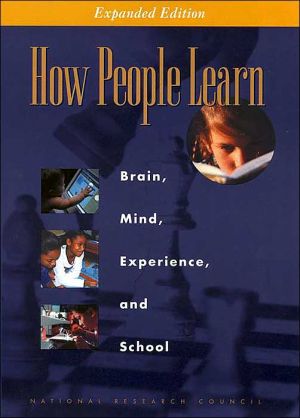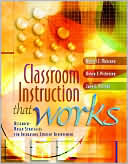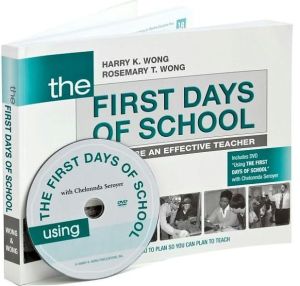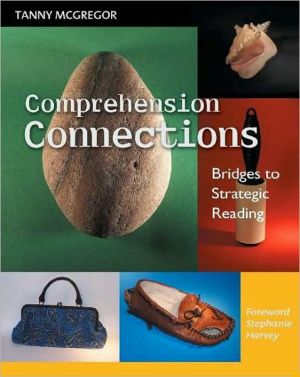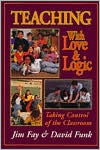How People Learn: Brain, Mind, Experience, and School: Expanded Edition
This popular trade book, originally released in hardcover in the Spring of 1999, has been newly expanded to show how the theories and insights from the original book can translate into actions and practice, now making a real connection between classroom activities and learning behavior. This paperback edition includes far-reaching suggestions for research that could increase the impact that classroom teaching has on actual learning.\ Like the original hardcover edition, this book offers...
Search in google:
This book includes far-readching suggestions for research that could increase the impact that classroom teaching has on actual learning. Like the original hardcover edition, this book offers exciting new research about the mind and the brain that provides answers to a number of compelling questions.When do infants begin to learn? How do experts learn and how is this different from non-experts? What can teachers and schools do—with curricula, classroom settings, and teaching methods—to help children learn most effectively? New evidence from many branches of science has significantly added to our understanding of what it means to know, from the neural processes that occur during learning to the influence of culture on what people see and absorb.How People Learn examines these findings and their implications for what we teach, how we teach it, and how we assess what our children learn. The book uses exemplary teaching to illustrate how approaches based on what we now know result in in-depth learning. This new knowledge calls into question concepts and practices firmly entrenched in our current education system. ...this book provides all educators with an excellent framework for understanding conceptual changes in the science of learning...
Part I: Introduction 1 Learning: From Speculation to Science Part II: Learners and Learning 2 How Experts Differ from Novices 3 Learning and Transfer 4 How Children Learn 5 Mind and Brain Part III: Teachers and Teaching 6 The Design of Learning Environments 7 Effective Teaching: Examples in History, Mathematics, and Science 8 Teacher Learning 9 Technology to Support Learning Part IV: Future Directions for the Science of Learning 10 Conclusions 11 Next Steps for Research
\ Curriculum Administrator...exciting new research about the mind and the brain...\ \ \ \ \ From The Critics...this book provides all educators with an excellent framework for understanding conceptual changes in the science of learning...\ \ \ BooknewsAn expanded edition of a resource in which new research about the mind, the brain, and the processes of learning are applied to questions regarding curricula, classroom settings, and teaching methods. Drawing on the findings from many branches of science, the 11 chapters discuss how experts differ from novices, learning and transfer, how children learn, teachers and teaching, and future directions. Annotation c. Book News, Inc., Portland, OR (booknews.com)\ \
